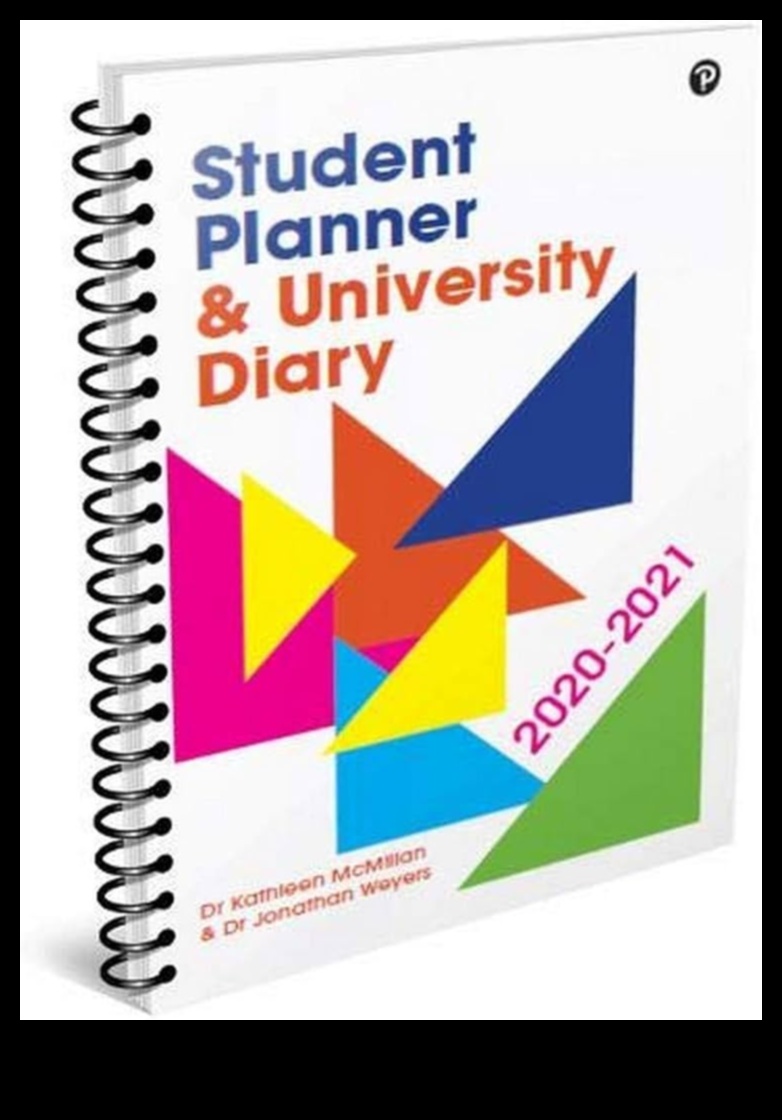
I. Introduction
A student diary is a personal journal that students can use to record their thoughts, feelings, and experiences. It can be a great way to reflect on your time at university, and to document your personal growth and development.
Student diaries can also be a helpful tool for managing stress, and for staying organized. By writing down your thoughts and feelings, you can clear your head and gain a better perspective on your problems.
In this article, we will discuss the benefits of keeping a student diary, and provide tips on how to start and maintain one. We will also share some real experiences from university days, to give you a better idea of what a student diary can look like.
II. Benefits of keeping a student diary
There are many benefits to keeping a student diary, including:
- Relieving stress
- Improving your memory
- Boosting your creativity
- Developing your writing skills
- Tracking your progress
- Reflecting on your experiences
- Making sense of your life
- Connecting with others
III. How to start a student diary
If you’re not sure how to start a student diary, here are a few tips:
- Choose a comfortable place to write.
- Set aside a specific time each day to write in your diary.
- Don’t worry about grammar or spelling.
- Write whatever comes to mind.
- Be honest with yourself.
- Have fun!
IV. What to include in a student diary
There is no right or wrong way to include in a student diary. However, some common things to include include:
- Your thoughts and feelings
- Your experiences
- Your goals and dreams
- Your challenges and struggles
- Your successes and accomplishments
- Your reflections on life
V. Tips for writing a student diary
Here are a few tips for writing a student diary that will be helpful and meaningful:
- Write regularly.
- Be honest with yourself.
- Don’t worry about grammar or spelling.
- Have fun!
VI. Common mistakes to avoid
There are a few common mistakes that students make when keeping a diary, including:
- Writing too much or too little.
- Writing about only negative things.
- Writing about things that you wouldn’t want others to read.
- Not writing in your diary regularly.
VII. How to use a student diary effectively
A student diary can be a powerful tool for learning and personal growth. Here are a few tips on how to use your diary effectively:
- Use your diary to track your progress.
- Use your diary to reflect on your experiences.
- Use your diary to solve problems.
- Use your diary to connect with others.
VIII. How to share your student diary with others
If you want to share your student diary with others, there are a few different ways you can do it:
- You can publish your diary online.
- You can read your diary aloud to others.
- You can share excerpts from your diary with others.
IX. The importance of keeping a student diary
A student diary can be a valuable tool for learning and personal growth. It can help you to relieve stress, improve your memory, boost your creativity, develop your writing skills, track
| Feature | Student Diary | University Experience | College Life | Student Life | Student Stories |
|---|---|---|---|---|---|
| What it is | A personal journal that students can use to record their thoughts, feelings, and experiences | A collection of essays, stories, and poems that document the challenges and triumphs of university life | A collection of articles, essays, and stories that provide insights into the lives of college students | A collection of personal essays, stories, and poems that explore the challenges and joys of being a student | A collection of first-hand accounts of student experiences that can be used to inform and inspire others |
| Benefits | Can help students to process their experiences, reflect on their learning, and develop their writing skills | Can help students to connect with others who are going through similar experiences | Can help students to learn about different cultures and perspectives | Can help students to develop their critical thinking and problem-solving skills | Can help students to make sense of their experiences and find meaning in their lives |
| Examples | The Diary of a Young Girl by Anne Frank | Educated by Tara Westover | The Perks of Being a Wallflower by Stephen Chbosky | The Catcher in the Rye by J.D. Salinger | Notes from a Young Black Scholar by Ta-Nehisi Coates |

II. Benefits of keeping a student diary
There are many benefits to keeping a student diary, including:
- It can help you to stay organized and track your progress.
- It can be a place to vent your frustrations and emotions.
- It can help you to reflect on your experiences and learn from your mistakes.
- It can be a valuable resource for future reference.
- It can be a way to connect with other students and share your experiences.
Benefits of keeping a student diary
There are many benefits to keeping a student diary, including:
- It can help you to stay organized and on track with your studies.
- It can help you to reflect on your experiences and learn from your mistakes.
- It can be a great way to express your thoughts and feelings.
- It can be a source of support and encouragement during difficult times.
- It can be a valuable tool for future job applications and graduate school admissions.
IV. What to include in a student diary
A student diary can be a great way to record your thoughts, feelings, and experiences during your time at university. There are no hard and fast rules about what to include in a student diary, but here are some ideas:
- Your daily activities
- Your thoughts and feelings about your classes, professors, and classmates
- Your social life
- Your challenges and successes
- Your goals and dreams
- Anything else that you think is important
The best way to decide what to include in your student diary is to think about what you want to get out of it. Are you looking for a way to process your experiences and emotions? Do you want to keep track of your progress? Are you hoping to share your stories with others? Once you know what you want to get out of your student diary, you can start to fill it with the things that are important to you.
Remember, there is no right or wrong way to keep a student diary. The most important thing is to make it something that you enjoy and that is helpful to you.

V. Tips for writing a student diary
Here are some tips for writing a student diary:
- Be honest and write from the heart.
- Don’t worry about grammar or spelling.
- Write about your thoughts, feelings, and experiences.
- Include details about your classes, professors, and classmates.
- Make sure to date your entries.
- Read your diary regularly and reflect on what you’ve written.
Writing a student diary can be a great way to process your experiences, learn from your mistakes, and stay motivated. It can also be a fun way to document your time in college and look back on it years later.
VI. Common mistakes to avoid
When writing a student diary, it is important to avoid making common mistakes. These mistakes can include:
- Writing in a boring way
- Being too self-critical
- Writing about things that are not relevant to your life
- Not writing regularly
To avoid these mistakes, it is important to keep the following in mind:
- Make your writing interesting and engaging
- Be honest with yourself about your experiences
- Focus on writing about things that are important to you
- Set aside time each day to write in your diary
By following these tips, you can avoid making common mistakes and write a student diary that is both informative and enjoyable to read.
VII. How to use a student diary effectively
A student diary can be a valuable tool for learning and personal growth. Here are some tips for using your student diary effectively:
- Use your diary to reflect on your experiences. What did you learn from each class? What challenges did you face? How did you overcome them?
- Use your diary to set goals and track your progress. What do you want to achieve in your studies? What steps do you need to take to reach your goals?
- Use your diary to explore your thoughts and feelings. What are you passionate about? What are your fears and dreams?
- Use your diary to connect with others. Share your experiences with your friends, family, and teachers. Get feedback on your goals and ideas.
By using your student diary effectively, you can learn more about yourself, your goals, and your passions. You can also develop strategies for overcoming challenges and achieving your goals.
How to share your student diary with others
Once you have written your student diary, you may want to share it with others. There are a few different ways to do this.
One way to share your diary is to publish it online. You can do this on a blog, a website, or a social media platform. If you choose to publish your diary online, be sure to make it private so that only people you approve of can read it.
Another way to share your diary is to print it out and give it to friends or family members. You can also read your diary aloud to them. This is a great way to share your experiences with others and get feedback on your writing.
If you are not comfortable sharing your diary with others, you can always keep it private. This is a great way to reflect on your experiences and to track your progress as a student.
No matter how you choose to share your student diary, it is a valuable tool that can help you to grow as a student and as a person.
IX. The importance of keeping a student diary
There are many benefits to keeping a student diary, including:
- It can help you to stay organized and on track with your studies.
- It can help you to reflect on your experiences and learn from your mistakes.
- It can be a great way to express your thoughts and feelings.
- It can be a valuable resource for future reference.
If you are thinking about starting a student diary, here are a few tips to help you get started:
- Choose a notebook or journal that you will enjoy using.
- Find a time each day to write in your diary.
- Be honest and open in your writing.
- Don’t worry about making your diary perfect.
Keeping a student diary can be a rewarding experience. It can help you to improve your academic performance, learn from your experiences, and express yourself creatively. If you are thinking about starting a diary, I encourage you to give it a try.
X. FAQ
Q: What is a student diary?
A: A student diary is a personal journal in which a student records their thoughts, feelings, and experiences. It can be a great way to reflect on your studies, track your progress, and manage your stress.
Q: What are the benefits of keeping a student diary?
A: There are many benefits to keeping a student diary, including:
- It can help you to improve your writing skills.
- It can help you to manage your stress and anxiety.
- It can help you to identify your strengths and weaknesses.
- It can help you to set goals and stay motivated.
- It can be a great way to reflect on your experiences and learn from them.
Q: How do I start a student diary?
A: There are no hard and fast rules for starting a student diary, but here are a few tips to get you started:
- Choose a notebook or journal that you enjoy writing in.
- Find a comfortable place to write where you won’t be disturbed.
- Start by writing about your thoughts and feelings about your studies.
- Over time, you can start to include other things in your diary, such as your goals, dreams, and accomplishments.